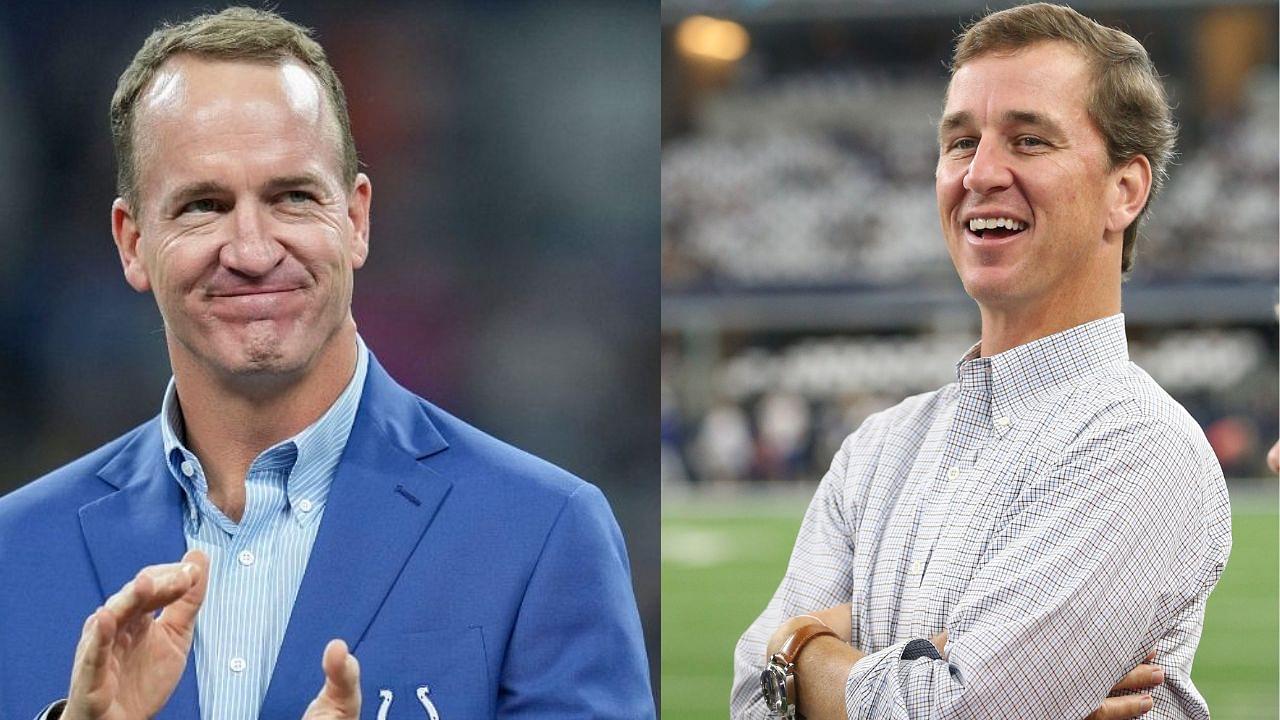Cooper Manning’s unfulfilled dreams of earning a name in the league often get overshadowed by his famous brothers, Peyton and Eli. But before the former Broncos and Giants QBs became legends, Cooper was gradually making his own mark–but was later cut short by spinal stenosis.
Advertisement
Back in 1990, when he was attending Isidore Newman School in New Orleans, Cooper stood out as a wide receiver in high school. Interestingly, Peyton Manning and Cooper Manning played together in High School, where Manning excelled as the quarterback and Cooper assisted him as an accurate and high-functioning WR.
At 6’4″ inches, it was impossible to overlook him on the field. His junior season was truly exceptional; he managed to catch a total of 76 passes and racked up over 1,000 yards without fumbling a single ball. As a result of his performance, he earned himself a scholarship to the University of Mississippi and was thrilled to walk in his father Archie’s footsteps there. As Cooper entered his senior year in high school, he joined forces with his brother, Peyton, and made a great team.
However, things changed for the worse when Cooper began experiencing numbness in his hand, which led to him dropping passes in games. However, he remained resolute—so much so that persevered through it all by also excelling in basketball and guiding Newman to a state championship.
However, Cooper’s wish to live up to his family legacy i.e. playing football started derailing when he started experiencing distressing symptoms in his right hand–causing numbness in his fingers. It eventually led to unexpected fumbles in critical games and overshadowed an otherwise stellar season.
Initially, Cooper hoped the numbness was temporary but the issue worsened once the basketball season arrived. What deserves applause is despite the limited sensation in his hand, Cooper successfully guided Newman to victory in the state championship with an average of 12 points.
Once the basketball season was over, Cooper decided to consult his family and confided in his parents. After this, medical evaluations were done and doctors suspected a nerve injury– something not uncommon in football players.
Thereafter, Cooper underwent surgery with hope and dreams in his eyes that this would solve his issues. However, the relief did not last long.
As summer arrived and Cooper was excited for his freshman year at Ole Miss–the numbness returned.
Cooper’s time at the training camp turned into an ordeal as he faced the same symptoms that troubled him greatly. As he consulted more experts for their insights, the diagnosis was disheartening– Spinal stenosis.
This condition, which narrows the spinal canal was rare in young athletes. Yet Cooper was diagnosed with it, which ultimately forced him to retire from football at the tender age of 16.
It is true that Cooper’s football aspirations came to a halt. However, that setback didn’t overshadow his entire life story. Post-retirement from the game he loved so dearly, Cooper’s younger siblings, Peyton and Eli kept up his legacy with a heartwarming gesture.
How Peyton honored Cooper’s legacy with jersey No. 18
The ex-Denver Broncos standout quarterback paid tribute to Cooper by donning his number 18 during his 14 seasons with the Indianapolis Colts and four with the Denver Broncos.
Furthermore, Cooper’s son, Arch Manning continued the family tradition by enrolling at Newman High School– the same place where his father had excelled. Eventually, Arch made a name for himself as a quarterback and finished as the top player in his graduating class.
Now, a freshman at the University of Texas, Arch has already made headlines while playing in Texas Longhorns–by reaching 20.3 MPH on his 80-yard TD reception—surpassing even the speed of Tyreek Hill.
While Cooper’s brother donned the no. 18 jersey to keep his football spirit alive and his son is on the path to joining the NFL, Cooper has built his own path. He is now a successful host of The Manning Hour on Fox Sports.







